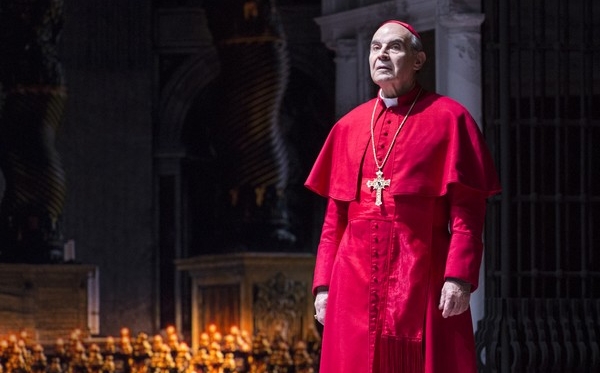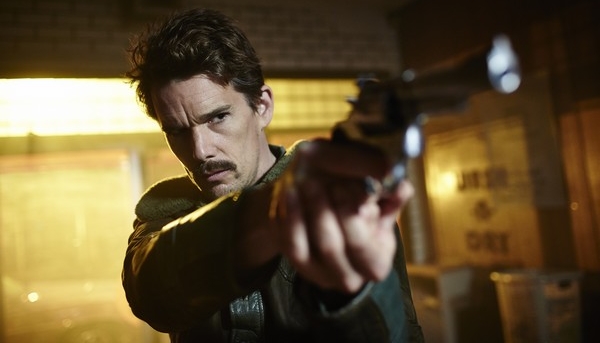“Do you know, I have a little story for you,” Suchet says over coffee. His voice is a delight to listen to: colourful and pronounced; exactly what you would expect for someone who honed their vocation in repertory theatre and the Royal Shakespeare Company. “I was in Los Angeles for The Last Confession, and a family contacted me. They asked would I mind if I met them afterwards. I came out to the stage door, and there was this young boy of 13 dressed as Hercule Poirot, with the full costume and moustache. The wing-collar, bow-tie, waistcoat. His parents told me that he had insisted he fly from LA with them to New York, because he couldn’t find the right homburg hat, and spent over an hour in the shop until he found the right one so that he could bring it to me. And that’s today! To witness that young boy who sat through the play, all dressed up as Poirot and not at all embarrassed, is so gratifying and humbling. I was offered very suddenly to play this little man back in 1987, which changed my life and, I am finding out as I travel now, has changed the lives of so many people. And I find that just extraordinary.”
Given that the novels of Agatha Christie are some of the most widely-read stories in the world (matched only by Shakespeare), it is a remarkable testament to Suchet’s craft that his embodiment of Poirot is now almost synonymous with Christie’s original creation. Despite such strong association, however, he has avoided being typecast, thanks in part to the seriousness in which he undertakes each role.
“I remember reading in the press a few years ago a reviewer say he was ‘Looking forward to Suchet lightening up a bit.’ I think what he was latching on to is that I do take my work and my responsibilities as a character actor very, very seriously. You see, I sat down one day, and I sort of analysed myself. What am I doing with myself? And I realised that there are basically – and this is rather simplified – two types of writer for the public. There are those who write novels to be read, and there are those who are playwrights writing to be performed. Sitting at my desk, I suddenly found a purpose for myself. I would dedicate my life as an actor to serve my writers. When I started reading [Christie’s] books, I realised that [Poirot’s] voice had never been shown before. I didn’t have to work out how to play him; I just followed my raison d’etre for being an actor. I became the Poirot that hadn’t been seen, and all of a sudden the readership was saying, ‘I can see him! He’s suddenly real!’ That was fabulous for me. So yes, I take my work very seriously, because I found a very serious purpose for it.”
His role as Geovanni Benelli once again finds Suchet undertaking a remarkable character, albeit this time one who actually lived. Benelli was instrumental in the election of Pope John Paul I, who after only 33 days was found dead. Accusations of murder were instantaneous, and it is into this atmosphere of conspiracy and doubt that Suchet leads his audience.
“Not much is known about him. No literature was written about him, he was never described in what he would wear or what he sat down and had for breakfast. What we do know about him is extraordinary. Having lost his best friend, he goes through a great crisis of faith. Faith in God – how can you let a Pope die? – to faith in the Catholic Church itself. Was it murder? Who murdered him? What this play does extraordinarily well is to take away the fourth-wall of the theatre and allow the audience into the Vatican. You don’t come into a religious organisation, even though all of us are walking around in cardinal robes. You enter parliament, you enter argument, you enter politics. You enter fighting and power-play, a world that you didn’t know existed behind those walls. And that’s what audiences are coming away fascinated by.”
BY ADAM NORRIS

